Academics

Every class at the Free Lutheran Bible College is devoted to the study of God’s Word and its application for life and faith in Jesus Christ. Students are not only earning a college degree, they are making an eternal investment. Whatever future career or vocation they pursue, they will be ready to face life’s most difficult questions and challenges head on.

Free Lutheran Bible College
MN Christian Universities*
*Based on the average required Bible/Theology credits at seven of the largest Minnesota Christian Universities. (2021-22)
FLBC students earn more Bible/Theology credits in 2 years, than most Christian Universities require in 4 years.
Objectives
- Learn how to understand and apply Scripture.
- Trace God's story of salvation throughout the entire Bible.
- Prepare to share and defend your faith.
- Discover your biblical roles and responsibilities within a local congregation.
- Formulate a biblical worldview that provides a foundation for the Christian life.
- Understand historic Lutheran doctrine.
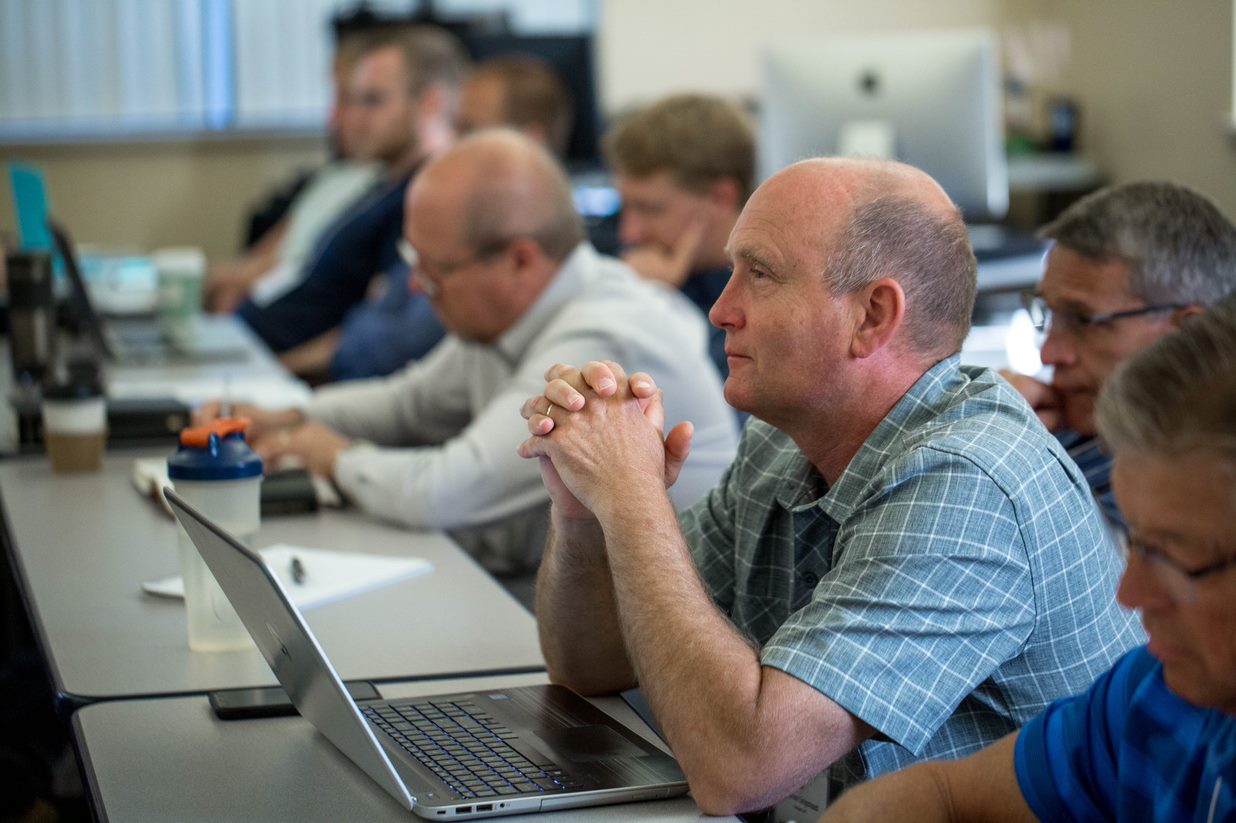
Learn how to understand and apply Scripture.


Prepare to share and defend your faith.
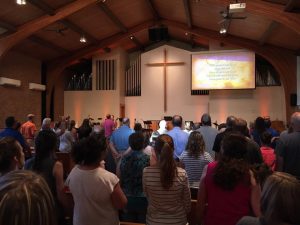
Discover the biblical roles and responsibilities in the congregation.
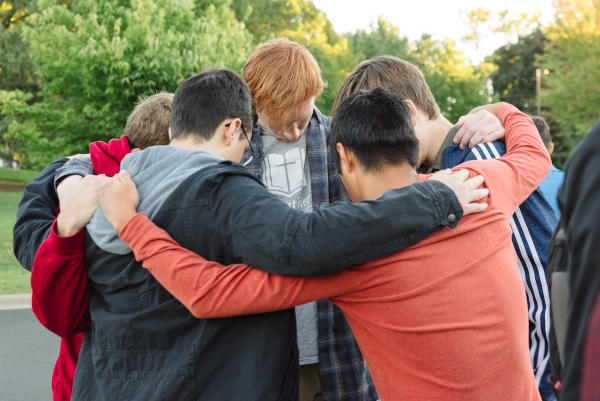
Formulate a biblical worldview that provides a foundation for the Christian life
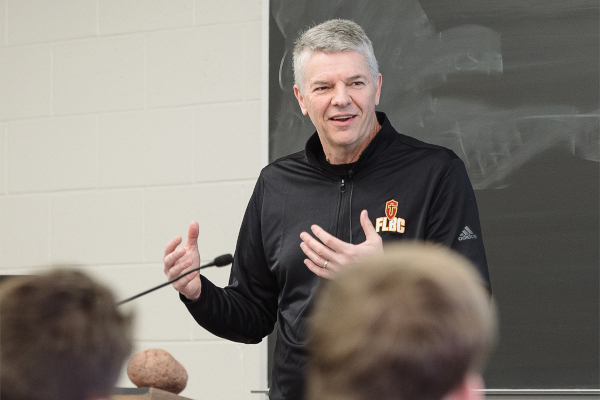
Understand historic Lutheran doctrine
Program
Associate of Arts in Bible & Ministry
This two-year residential program provides the biblical foundation for students to pursue their calling. No matter where God leads, students will be prepared to think biblically and speak the Gospel to a searching world.
Those who wish to pursue a two-year Certificate in Bible & Ministry may still do so. More info can be found by following the link above.
Bachelor of Arts in Bible & Ministry
B.A students take advantage of all that FLBC has to offer, as they prepare for life and service in His kingdom. Students may tailor their classes to target unique ministry emphases, which include youth ministry, cross-cultural ministry, and advanced theological studies.
Courses
BI 1101 | Pentateuch
BI 1101 is a three credit course which is an introduction to the first five books of the Bible, emphasizing their Mosaic authorship and their unity, as well as the foundation they set for the entire Bible (Old and New Testament). The books of Genesis and Deuteronomy will receive special focus.
BI 1112 | Historical Books
BI 1112 is a three credit course in which the history of God’s people is studied from their entrance into the Promised Land under Joshua until their return from the Babylonian captivity about one thousand years later. Emphasis is placed on the enduring spiritual lessons of this history.
BI 1203 | Luke and Acts
BI 1203 is a three credit course studying Luke’s writings regarding the life of Christ and the early Church with special emphasis on Jesus ushering in the kingdom of God with an invitation for all people and how that kingdom is physically manifested in the local congregation.
BI 2121 | Major Prophets
BI 2121 is a three credit courses in which the books of Isaiah, Jeremiah, Ezekiel and Daniel are introduced. The focus of the course will be a systematic historical, and devotional study of Isaiah with application for the church and our world today. Special emphasis will be placed on the book’s Messianic prophecies.
BI 2201 | Gospel of John
BI 2201 is a three credit course which presents eyewitness testimony that Jesus Christ is the incarnate Son of God, the Lamb of God, sent to be the Savior of the world. The purpose of this Gospel is to bring the reader into a personal relationship with Christ as Savior and Lord. The call to repentance of sin and faith in Jesus is presented as the only way to experience “life in His name”.
BI 3132 | Minor Prophets
BI 3132 is a three credit course in which all twelve books of the minor prophets are introduced and placed in historical context. A number of the books will be studied exegetically to discover their primary meaning and significance.
BI 3214 | Romans
BI 3212 is a three credit course with Paul’s inspired letter to the Romans as the focus, offering a rich blend of doctrinal theology and practical application. This powerful book highlight the foundational truths of justification by grace through faith and also demonstrate how the theology of salvation applies to daily Christian living.
BI 3221 | Pastoral Epistles
BI 3221 is a three credit course featuring expositional studies in the letters of I and II Thessalonians, I and II Timothy, and Titus. Giving attention to shepherding principles and eternal truths found in these inspired books, students analyze their central messages and study parts of these letters in detail. Students also study the call, role, and ministry of the pastor, deacon, and members of the congregation.
BI 3224 | I and II Corinthians
BI 3224 is a two credit course which studies Paul’s Epistles to the Corinthians, focusing on the message of the cross as God’s powerful key to addressing problems within a struggling congregation. These letters provide timeless insights from Paul’s example in ministry which are vital for congregational life today.
TH 1301 | Anthropology and Christology
TH 1301 is a two credit course in which the great doctrines of the Bible are studied systematically by means of assigned Bible passages and lectures. The focus for this course would be Anthropology and how man is created in the image of God and created for communion with others. This would also address male/female roles.
TH 1321 | Introduction to Biblical Studies
TH 1321 is a three credit course which consists of an in-depth study of the of the Holy Bible—its origins, history, veracity, characteristics, thematic content (with special emphasis on the unity of the Old & New Testaments), and value for study.
TH 2302 | Theology of Salvation
TH 2302 is a two credit course that will address the negative side of Anthropology with man’s fallen condition/original sin/actual sin (hamartiology). This class would proceed to address soteriology, justification and sanctification, as students are forced to grapple with how such sinners are made right before God and how he calls for them to live in light of His working in their lives.
TH 3301 | The Means of Grace and Eschatology
TH 3301 is a two credit course that focuses on addressing how God uses the means of grace (sacramental theology) in the life of the believer to adopt him as a child of God and assure him that his sins are forgiven. Baptism and the Lord’s Supper will be discussed at length, which we believe is especially needed because of the heavy Baptist / Reformed theology that is present in current American Evangelicalism. This class will also address the doctrine of election at length and present the Lutheran perspective. It will finish with a presentation of the doctrine of Eschatology as a capstone for the theological system at FLBC.
HI 3402 | Church History
TH 3402 is a three credit course which introduces students to the principle events and characters in the 2000 years since Christ instituted the Christian church. Special attention is given to the early church, the Reformation and the influences that lead up to the Lutheran free church movement.
HU 3422 | Apologetics and Christian Thought
HU 3422 is a three credit course which is an introduction to the philosophical foundations of the Christian worldview, providing reasons and answers while teaching students how to ask the right questions. The course is designed to increase the student’s certainty in the Gospel and give them confidence to carry on any conversation, even with people who disagree with them profoundly.
CM 2702 | Principles of Congregational Life
CM 2702 is a three credit course which teaches the major distinctive of Free Lutheran theology since the late 19th century. Students are directed to the calling, purpose, and function of the free and living congregation as viewed through New Testament models of congregational life. Other focuses include Biblical principles and strategies of evangelism and discipleship, especially relating to the planting and growth of local churches. Special emphasis is given to the principles and structure of the Association of Free Lutheran Congregations.
Hebrews
Poetical Books
Revelation
Captivity Epistles
General Epistles
Biblical Interpretation
Lutheran Confessional Theology
Theology of the Christian Life
Comparative Sects and Religions
Christian Service
Gospel Team – Puppet and Drama
Christian Education
Children’s Ministries I and II
Children’s Ministry Practicum
Introduction to Family Ministry
Introduction to Youth Ministry
Gospel Team – Basketball
Leadership Development Training
Youth Ministry Methods of Jesus
Intro to Cross-Cultural Ministry
Worldview, Kingdom and Culture (core F2022)
Effective Communication
Preaching and Public Speaking
Biblical Sexuality
Introduction to Audio Ministry
Introduction to Video Ministry
Video Production in Ministry
Instrumental Lessons
Voice Lessons
Gospel Team – Music
Gospel Team – Worship/Vespers
Music Ministry I and II
Music Ministry Practicum I and II
Symphonic Wind Ensemble
Proclaim Choir
Concert Choir
Courses
The curriculum at FLBC is designed to provide students with instruction in both Old and New Testament books, foundational Christian doctrines in Scripture, and practical training for their personal life and ministry.
Bible
Theology
General Education
The course will provide the student with a survey of the central developments and main characters in Christian history from the Reformation to the 21st century, as a framework for the comprehension and appreciation of our relationship to the past and its relevance to contemporary church life.
This course offers a survey of the first several centuries of church history, focusing on the key figures and theological developments from the years 100 A.D. to 700 A.D. Particular attention will be given to the first seven ecumenical councils
Ministry Training
Instructors
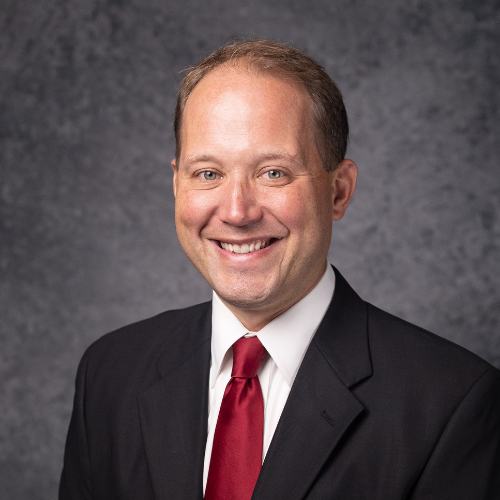
Andrew Hanson
Director of Music
Dr. Jerry Moan
New Testament; Director of Learning Resources
Dr. Wade Mobley
President, FLBCS
Dr. James Molstre
Chief Academic Officer
Rev. Steve Mundfrom
Systematic Theology; Church History
Dr. Brent Olson
Old Testament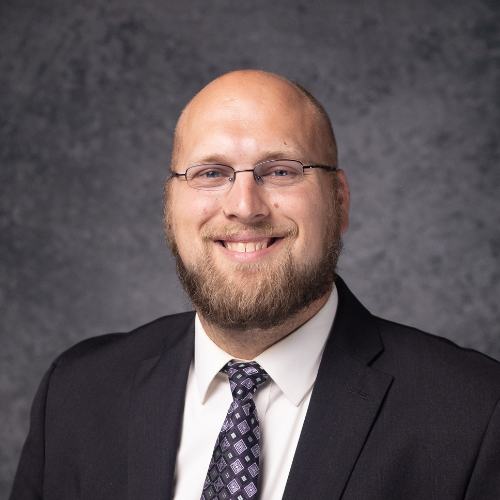
Dr. Nathan Olson
New Testament; Systematic Theology
Adam Osier
Dean, FLBCCredit Transfer
Credits earned at another institution may be accepted by Free Lutheran Bible College to satisfy general education and elective requirements. This is subject to review and approval by academic administration.
All required courses, with the exception of general education courses, must be taken at FLBC. A minimum of 25 percent of total credits must be completed at FLBC. Grades and grade point averages earned at other institutions do not transfer. Quarter-hour credits will normally be converted to semester hour credit.
Students who desire to transfer credits to FLBC must submit official transcripts of all previous undergraduate work as a part of the application process. Coursework with grades of C or higher will be considered for transfer. Credits from previously attended institutions that are not recognized by an accrediting body will be examined on a case-by-case basis by the academic team.
The Registrar’s Office provides services to students related to class schedules, transcripts, and more.
Academic Support
FLBC has opportunities for students to receive support in their academics. Our campus counselor is also an academic counselor and can help students stay organized and on track with their assignments.
Submit a request for more info by emailing academics@flbc.edu.
Accreditation
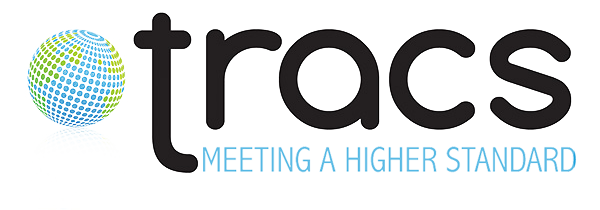
Free Lutheran Bible College and Seminary is a member of the Transnational Association of Christian Colleges and Schools (TRACS) [15935 Forest Road, Forest, VA 24551; Telephone: (434) 525-9539; e-mail: info@tracs.org], having been awarded Reaffirmation I of its Accredited Status as a Category III institution by the TRACS Accreditation Commission on April 25, 2023. This status is effective as of July 1, 2023 and is good for a period of ten years. TRACS is recognized by the United States Department of Education (ED), the Council for Higher Education Accreditation (CHEA), and the International Network for Quality Assurance Agencies in Higher Education (INQAAHE).
